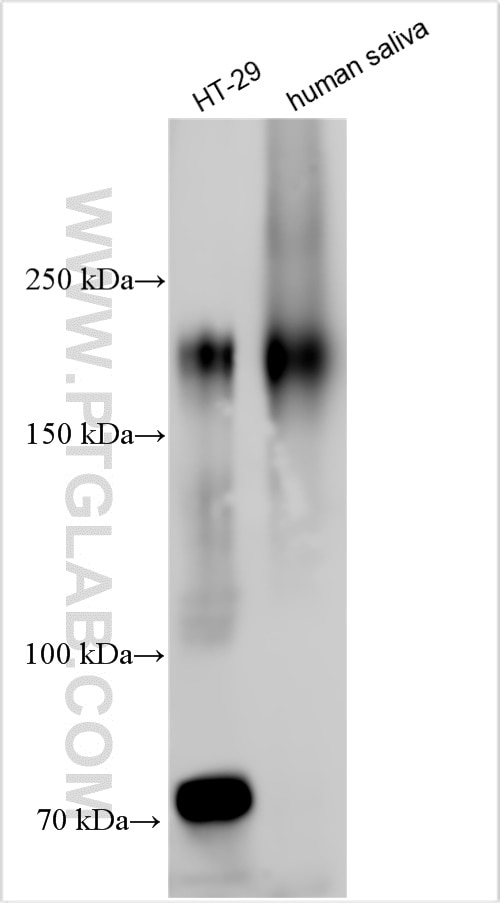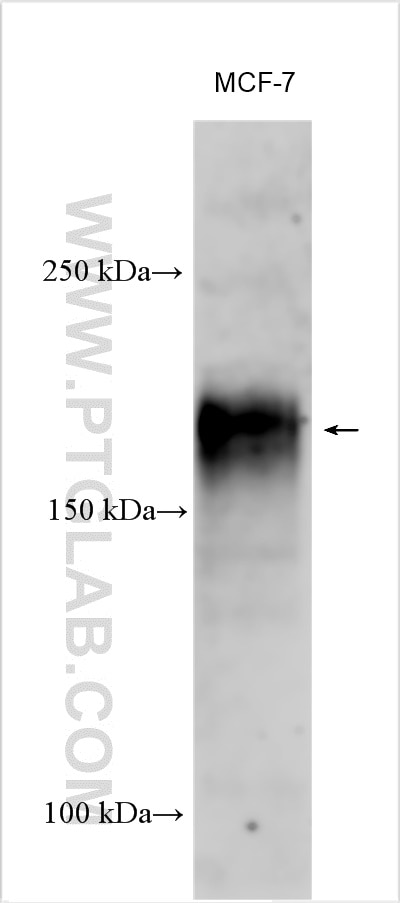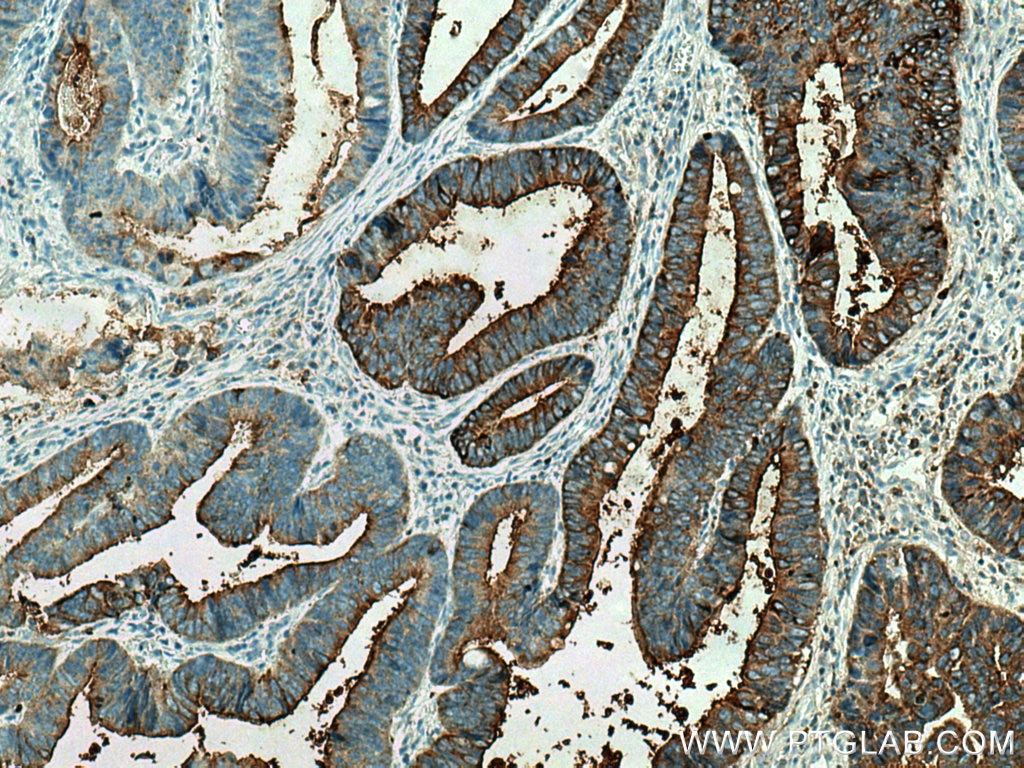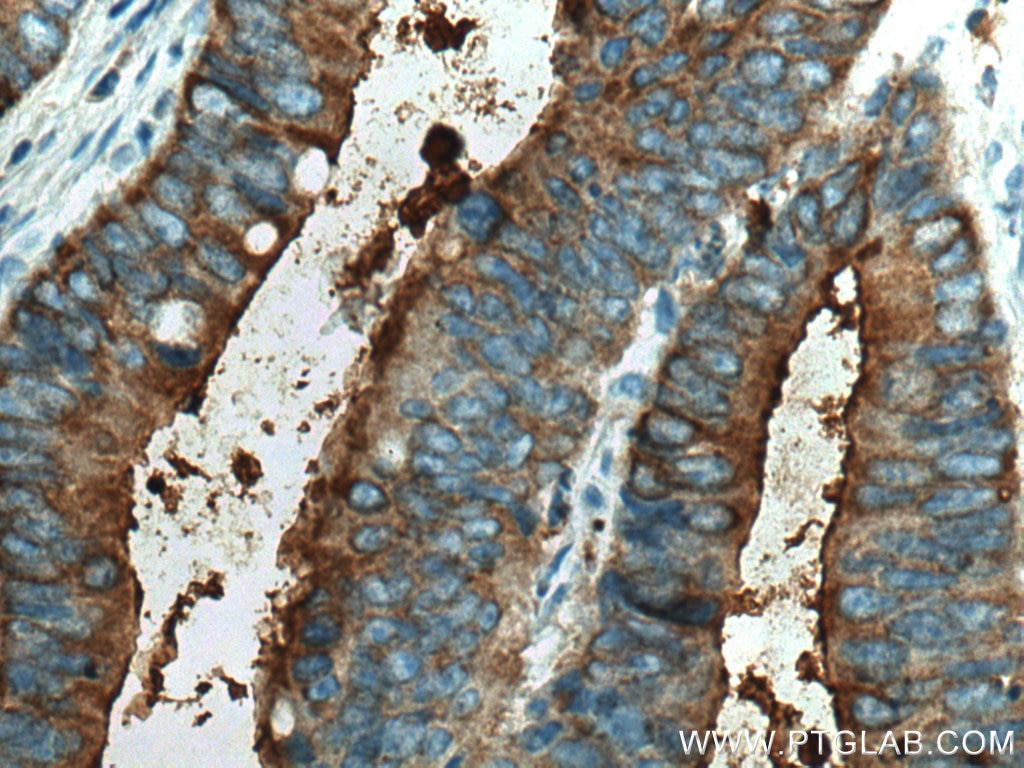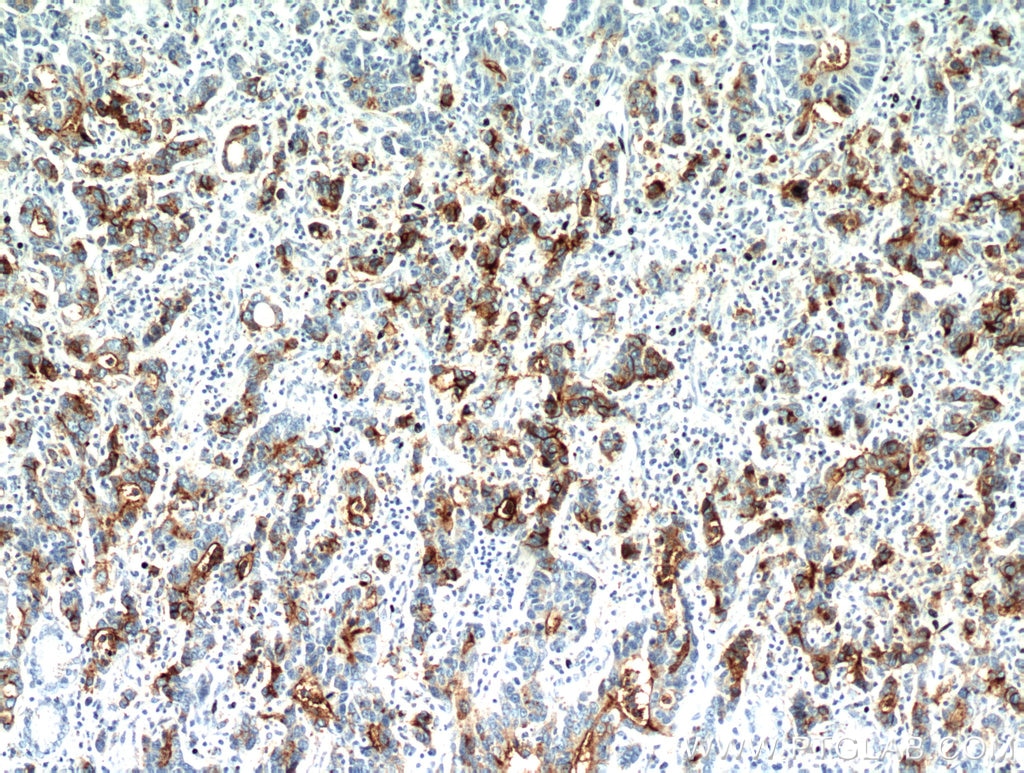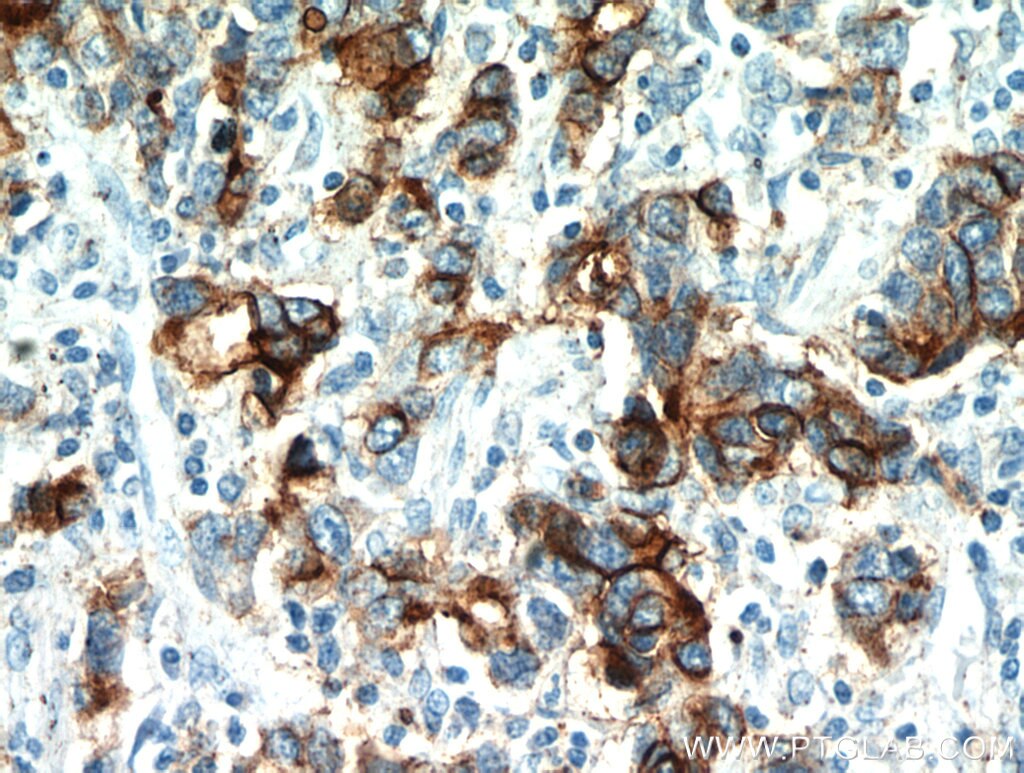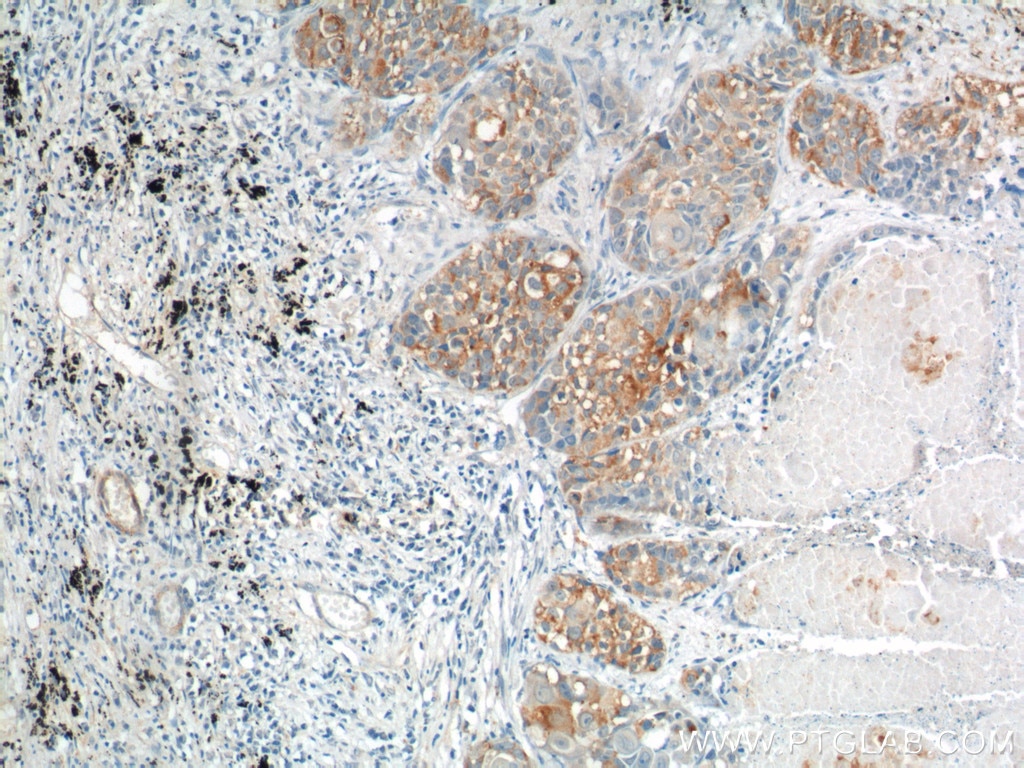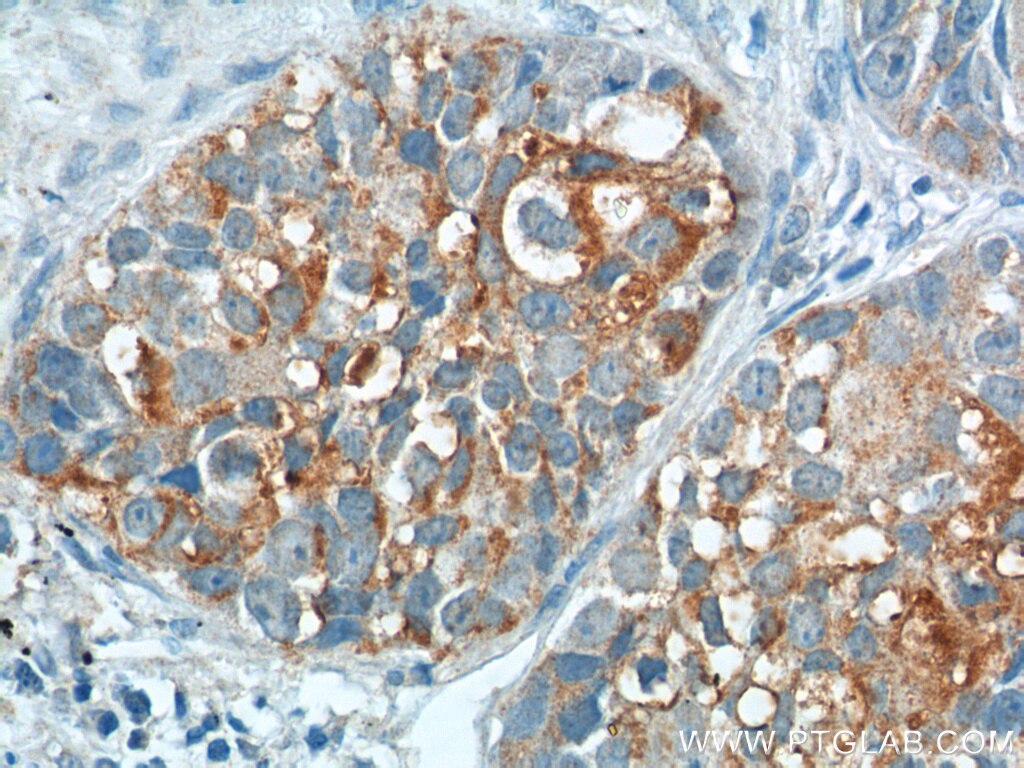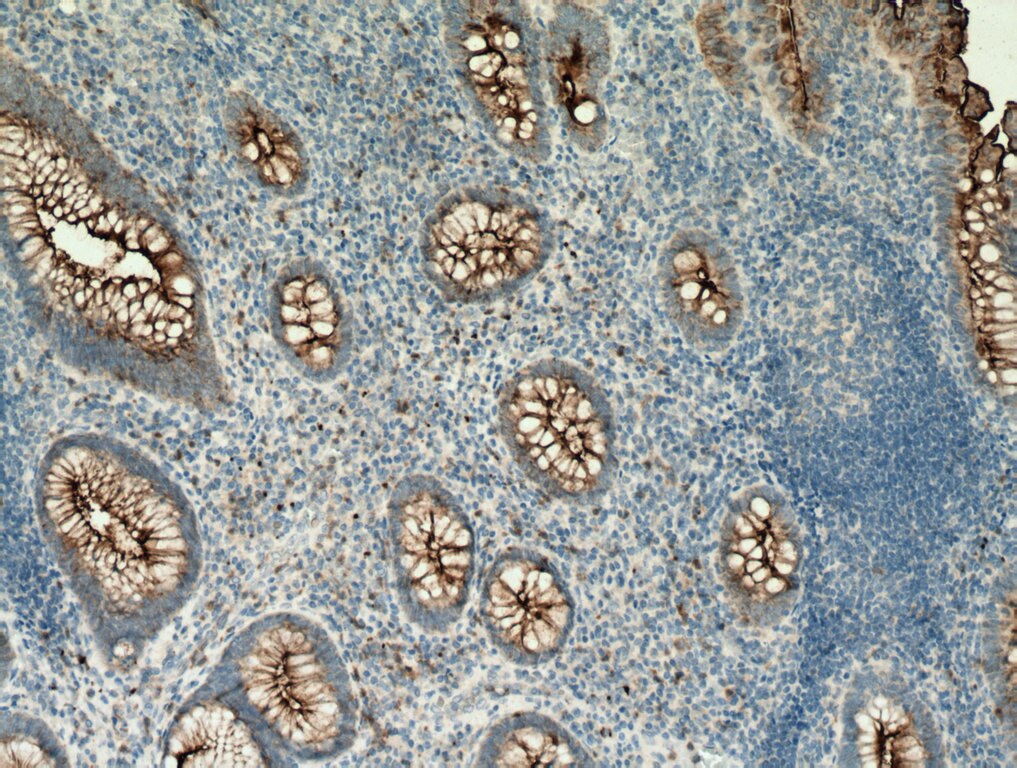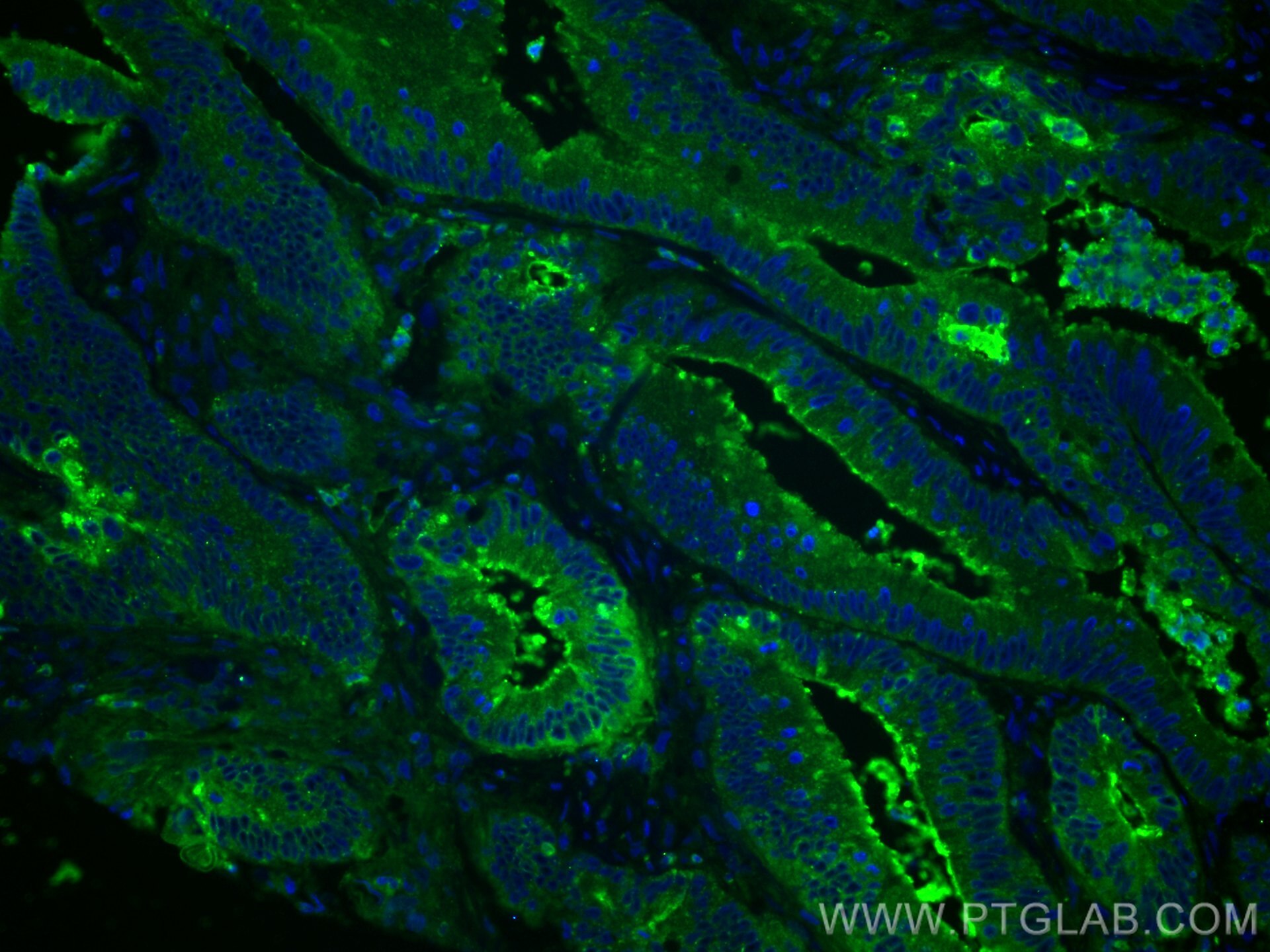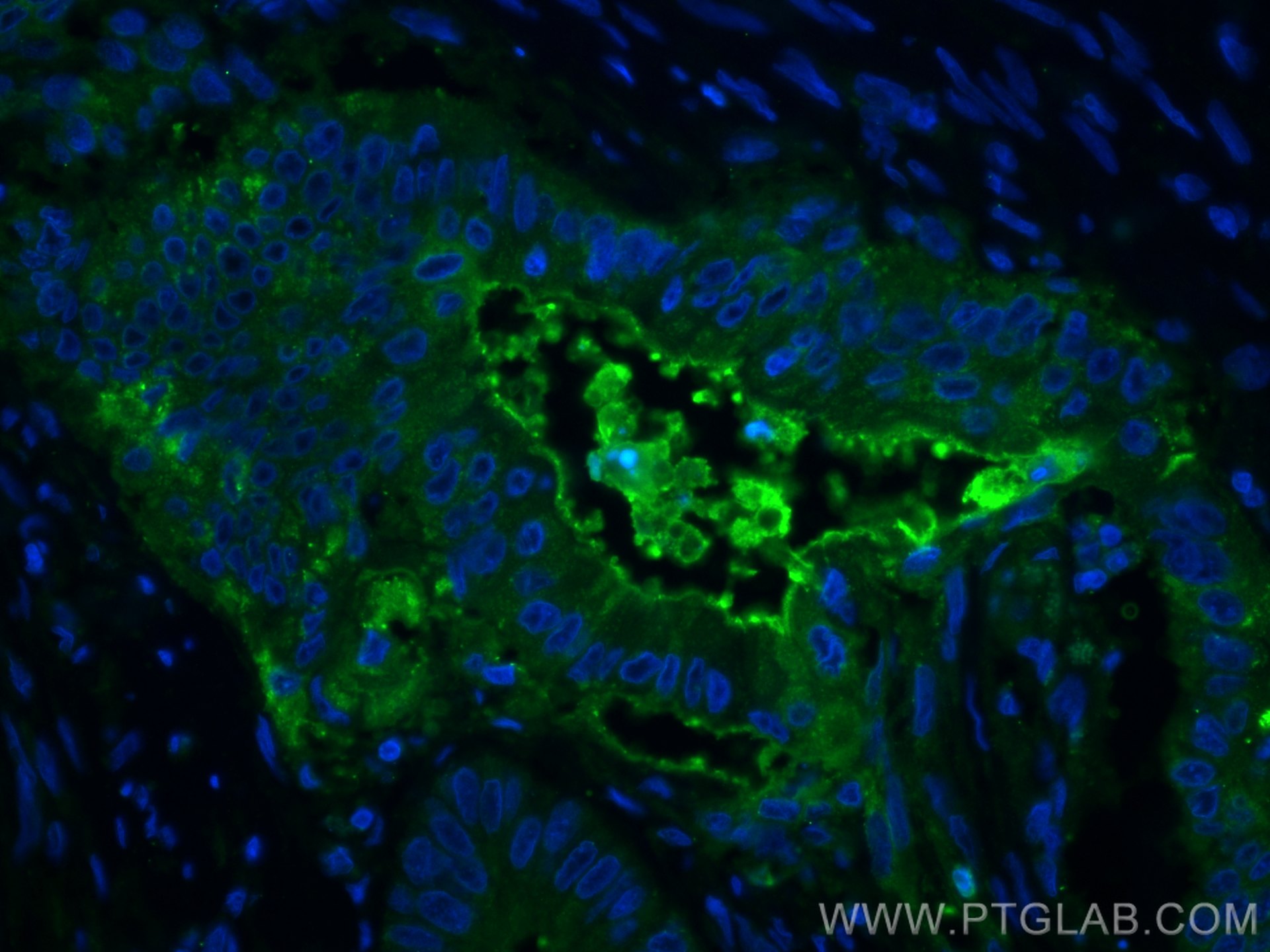Tested Applications
| Positive WB detected in | HT-29 cells, MCF-7 cells, human saliva |
| Positive IHC detected in | human colon cancer tissue, human appendicitis tissue, human stomach cancer tissue, human lung cancer tissue Note: suggested antigen retrieval with TE buffer pH 9.0; (*) Alternatively, antigen retrieval may be performed with citrate buffer pH 6.0 |
| Positive IF-P detected in | human colon cancer tissue |
Recommended dilution
| Application | Dilution |
|---|---|
| Western Blot (WB) | WB : 1:500-1:2000 |
| Immunohistochemistry (IHC) | IHC : 1:200-1:800 |
| Immunofluorescence (IF)-P | IF-P : 1:50-1:500 |
| It is recommended that this reagent should be titrated in each testing system to obtain optimal results. | |
| Sample-dependent, Check data in validation data gallery. | |
Published Applications
| KD/KO | See 1 publications below |
| WB | See 5 publications below |
| IHC | See 4 publications below |
| ChIP | See 1 publications below |
Product Information
10421-1-AP targets CEA/CD66e in WB, IHC, IF-P, chIP, ELISA applications and shows reactivity with human samples.
| Tested Reactivity | human |
| Cited Reactivity | human, mouse |
| Host / Isotype | Rabbit / IgG |
| Class | Polyclonal |
| Type | Antibody |
| Immunogen | CEA/CD66e fusion protein Ag0672 Predict reactive species |
| Full Name | carcinoembryonic antigen-related cell adhesion molecule 5 |
| Calculated Molecular Weight | 77 kDa |
| Observed Molecular Weight | 180-200 kDa, 77 kDa |
| GenBank Accession Number | BC034671 |
| Gene Symbol | CEA |
| Gene ID (NCBI) | 1048 |
| RRID | AB_2244691 |
| Conjugate | Unconjugated |
| Form | Liquid |
| Purification Method | Antigen affinity purification |
| UNIPROT ID | P06731 |
| Storage Buffer | PBS with 0.02% sodium azide and 50% glycerol, pH 7.3. |
| Storage Conditions | Store at -20°C. Stable for one year after shipment. Aliquoting is unnecessary for -20oC storage. 20ul sizes contain 0.1% BSA. |
Background Information
Carcinoembryonic antigen (CEA), also known as CEACAM5 or CD66e, is a cell surface glycoprotein belonging to the immunoglobulin superfamily, mainly serving as a cell adhesion molecule mediating intercellular contact by both homophilic and heterophilic binding (PMID: 21731662). CEA inhibits anoikis and plays a role in tumorigenesis and metastasis. CEA has been found to be overexpressed in a wide variety of human cancers, including colon, breast, and lung (PMID: 17167768). CEA is a tumor marker and is routinely exploited for diagnosis.
Protocols
| Product Specific Protocols | |
|---|---|
| WB protocol for CEA/CD66e antibody 10421-1-AP | Download protocol |
| IHC protocol for CEA/CD66e antibody 10421-1-AP | Download protocol |
| IF protocol for CEA/CD66e antibody 10421-1-AP | Download protocol |
| Standard Protocols | |
|---|---|
| Click here to view our Standard Protocols |
Publications
| Species | Application | Title |
|---|---|---|
Transl Res Molecular signature of interleukin-22 in colon carcinoma cells and organoid models. | ||
J Cell Mol Med CD39 Contributes to the Ability of Cell Invasion in Heterogeneity of Colorectal Cancer | ||
Int J Biol Sci FBW7 suppresses metastasis of colorectal cancer by inhibiting HIF1α/CEACAM5 functional axis.
| ||
Gene Ther Lentivirus-mediated RASSF1A expression suppresses aggressive phenotypes of gastric cancer cells in vitro and in vivo. | ||
World Neurosurg Discovery of Aquaporin-1 and Aquaporin-4 Expression in an Intramedullary Spinal Cord Ependymal Cyst: Case Report. | ||
PLoS One Correlation of alpha-1 antitrypsin levels and exosome associated neutrophil elastase endothelial injury in subjects with SARS-CoV2 infection |
Reviews
The reviews below have been submitted by verified Proteintech customers who received an incentive for providing their feedback.
FH Claire (Verified Customer) (09-30-2024) | A repeat order of an antibody previously used in colorectal adenocarcinoma research as this produced excellent images previously, we are now aiming to optimise this antibody for pancreatic work
|
